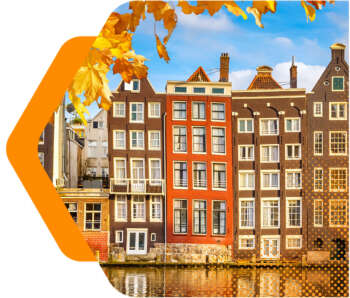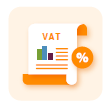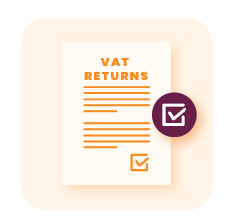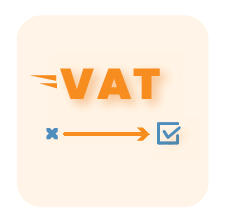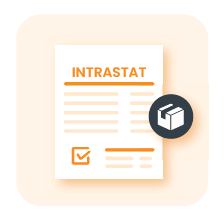E-Commerce & B2C Services in The Netherlands
The One Stop Shop (OSS) mechanism is detailed in Section 7 of Chapter V of the Dutch VAT Act, which incorporates provisions from Chapter 6 of Title XII of the EU VAT Directive. These were modified by Council Directives (EU) 2017/2455 and 2019/1995, commonly referred to as the “VAT e-commerce rules.”
The OSS is designed to streamline VAT obligations for businesses by replacing the earlier Mini One Stop Shop (MOSS) scheme. The MOSS was established across the EU in 2015 and was limited to cross-border B2C supplies of telecommunication services, television and radio broadcasting, and electronically supplied services (TBE services).
Read more about B2C services & E-Commerce in The Netherlands in our comprehensive guide.
Selling in The Netherlands?
Digital services in the Netherland
For VAT purposes, inbound B2B digital services are managed similarly to other inbound services. However, there is a particular framework for inbound B2C supplies, notably for telecommunications, broadcasting, and electronically supplied services (often abbreviated as “TBE services”). These services are subject to specific regulations that align with the destination principle, which means they are taxed where the consumer is located, or the services are consumed.
Additionally, as of July 1, 2021, the European Union implemented the “One Stop Shop” (OSS) system. This system was designed to simplify VAT registration and reporting for suppliers of international e-commerce goods and services, reducing the administrative burden and facilitating compliance with VAT obligations across different EU member states. The OSS allows businesses to register for VAT in one EU member state and manage their VAT declarations and payments for supplies to consumers throughout the EU through a single electronic portal.
New E-commerce rules in the EU
Although the OSS was originally scheduled to be implemented on January 1, 2021, the onset of the Coronavirus pandemic delayed its introduction. This system is a voluntary simplification tool, which means it is not mandatory but available for those who choose to use it. It allows eligible businesses that provide cross-border B2C supplies of goods and services, both within the EU and to non-EU countries, to avoid the administrative burden of registering for VAT in every single EU Member State where their consumers are based. Instead, they can register for VAT in just one EU Member State and manage their VAT obligations for all Member States through the OSS portal. This facilitates businesses in handling VAT on cross-border transactions more efficiently.
The One Stop Shop (OSS) framework is tailored to facilitate different types of cross-border B2C transactions, and it generally covers:
B2C services provided by non-EU taxable persons — referred to as the “non-Union One Stop Shop.” This scheme is for non-EU businesses providing electronic, telecommunication, and broadcasting services to EU consumers.
B2C distance sales of goods and services by EU-based taxable persons not established in the consumer’s Member State — known as the “Union One Stop Shop.” This allows businesses established within the EU but not in the Member State of the consumer to handle VAT for distance sales through a single portal.
Distance sales of goods imported from outside the EU with a value of less than 150 euros — the “Import One Stop Shop” (IOSS). This is intended for the sale of low-value goods to EU consumers, streamlining the VAT process for imports.
For an EU company, registration for the IOSS scheme must occur in the Member State where the company has its headquarters, typically its principal place of business or head office. If a non-EU company has one or more fixed establishments within the EU, it may choose to register in any of those Member States. However, if a non-EU company has no established establishments in the EU, it is free to register in any Member State of its choice.
In cases where a non-EU company uses an intermediary based in the EU to facilitate distance sales from outside the EU, the company is obliged to register for the IOSS in the Member State where the intermediary is established. This intermediary acts on behalf of the non-EU company and handles the VAT obligations related to the sales.
A business can register for the One Stop Shop (OSS) system for distance sales of goods imported from outside the EU if it fulfills one of the following conditions:
- The business is established in one of the EU Member States.
- The business is represented by an intermediary who is based in an EU Member State.
- The business is established in a non-EU country that has entered into a mutual assistance agreement with the EU, which has a scope similar to the mutual assistance agreement within the EU, and the business conducts distance sales from this non-EU country.
- Goods imported under this scheme are exempt from paying import VAT at the time of importation.
A taxable person who is registered for the OSS is required to submit electronic VAT returns to their Member State of Identification on a quarterly basis. However, for businesses registered under the Import One Stop Shop (IOSS), the VAT returns must be submitted monthly.
The VAT collected, as declared in the returns, is then distributed by the Member State of Identification to the relevant Member States of Consumption.
In the Netherlands, a person registered for the OSS must maintain detailed records of all transactions that fall under the scheme. They must also submit a special VAT report electronically to the Dutch tax office.
Records related to OSS transactions must be kept for ten years from the end of the year in which the transaction was carried out. These records should be accessible electronically and made available upon request by the relevant tax authorities.
Last Updated: 10/11/2023
Disclaimer
The information provided by Global VAT Compliance B.V. on this webpage is intended for general informational purposes only. Global VAT Compliance B.V. is not responsible for the accuracy of the information on these pages, and cannot be held liable for claims or losses deriving from the use of this information. If you wish to receive VAT related information please contact our experts at support@gvc.tax

